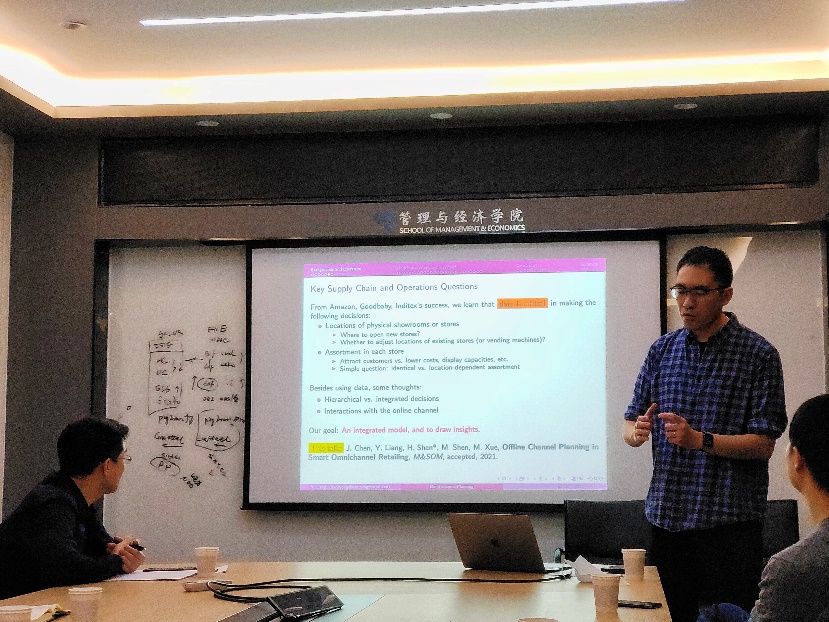On January 12, 2022, [Mingli Lecture Hall 2022 Issue 6] was honored to invite Associate Professor Liang Yong from the School of Economics and Management of Tsinghua University to give an academic report entitled "Offline Channel Planning of Omni-channel Retailing". The report was held in Conference Room 216 of the main building. More than 20 teachers and students from the Management Engineering Department of the School of Management and Economics attended the lecture. The host was Associate Professor Zhang Yuli of the Management Engineering Department of the School of Management and Economics.

In this report, Associate Professor Liang Yong shared an offline channel planning problem to help omni-channel retailers make store location and location-related assortment decisions in their offline channels to achieve profitability in both online and offline channels Maximize and achieve "thousands of stores and thousands of changes". This work uses a mixed multinomial logit (MMNL) choice model to characterize different customer preferences, estimates model parameters through an expectation-maximization (EM) method, and proves that the model has an equivalent mixed integer second-order cone programming (MISOCP) formula.

After the report, the participating teachers and students had a heated discussion on the use of dual data sets, parameter estimation, parameter sensitivity analysis and capacity limitation. The report received enthusiastic response and received unanimous praise from teachers and students!
Attachment: Profile of Associate Professor Liang Yong
Liang Yong is currently working in the School of Economics and Management, Department of Management Science and Engineering, Tsinghua University. He graduated from UC Berkeley with a Ph.D. in Industrial Engineering and Operations Research. He graduated from Purdue University and Tsinghua University with a master's degree and a bachelor's degree, respectively, and obtained a master's degree and a bachelor's degree in nuclear engineering and engineering physics. 13-14 worked for Google in charge of data center optimization. His current research interests include data-driven optimization theory; optimization theory and its application in operations management; dynamic mechanism design.






